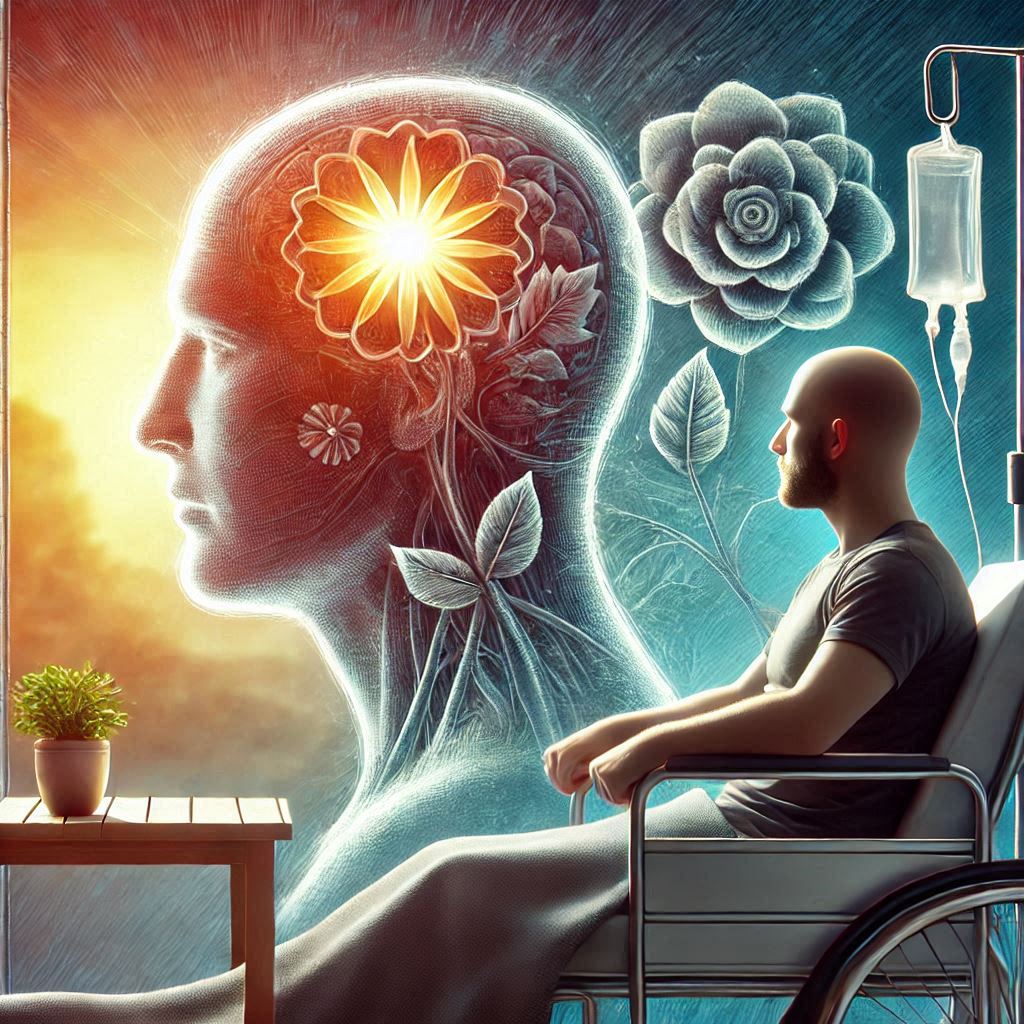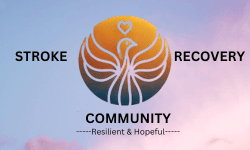Table of Contents
- 1. Introduction
- 2. Understanding Emotional Challenges
- 3. Professional Support Strategies
- 4. Self-Care and Emotional Management
- 5. Family and Caregiver Support
- 6. Rebuilding Confidence and Identity
- 7. Holistic Wellness Approaches
- 8. Technology and Support Resources
- 9. Managing Specific Emotional Challenges
- 10. Conclusion
- 11. Call to Action
- 12. Newsletter Signup:
- You May Also Be Interested In:
1. Introduction
The journey to recovery after a stroke extends beyond the physical realm. Emotional and psychological challenges are common and can significantly impact the healing process. Addressing these emotional struggles is crucial for holistic recovery. By normalizing these experiences and offering practical support, we can foster hope and resilience in stroke survivors.

2. Understanding Emotional Challenges
2.1 Common Emotional Responses
- Depression: Feelings of deep sadness, hopelessness, and loss of interest in activities.
- Anxiety: Worries about future strokes, abilities, and social interactions.
- Grief and Loss: Mourning the loss of previous abilities and lifestyle.
- Frustration and Anger: Anger at oneself or the situation, and frustration with recovery progress.
- Identity Crisis: Struggling with changes in self-identity and independence.

2.2 Psychological Impact of Stroke
- Neurological Basis of Emotional Changes: Stroke can damage brain areas responsible for regulating emotions, leading to mood changes.
- Brain-Body Connection: The brain’s condition directly affects emotional well-being.
- Normal vs. Abnormal Emotional Responses: Understanding typical emotional responses versus those that need professional intervention.
- Individual Variation in Emotional Recovery: Recognizing that each person’s emotional recovery journey is unique.
3. Professional Support Strategies
3.1 Mental Health Resources
- Types of Therapy: Various therapeutic approaches, including cognitive-behavioral therapy (CBT), psychotherapy, and group therapy.
- Counseling Approaches: One-on-one counseling to address specific emotional needs.
- Support Group Options: Groups providing shared experiences, understanding, and encouragement.
- Professional Mental Health Screening: Assessing mental health to tailor appropriate interventions.

3.2 Therapeutic Intervention Techniques
- Cognitive Behavioral Therapy (CBT): A structured, evidence-based approach to managing emotional challenges.
- Mindfulness-Based Stress Reduction: Techniques to manage stress through mindfulness and meditation.
- Group Therapy Benefits: Shared experiences and mutual support in a group setting.
- Family Counseling Approaches: Involving family members in therapy to provide comprehensive support.
4. Self-Care and Emotional Management
4.1 Personal Coping Mechanisms
- Emotional Regulation Techniques: Methods to control and manage emotional responses.
- Journaling and Self-Reflection: Writing to process emotions and reflect on progress.
- Mindfulness Practices: Techniques to stay present and reduce anxiety.
- Stress Management Strategies: Activities that reduce stress, such as exercise and hobbies.

4.2 Practical Coping Skills
- Setting Realistic Expectations: Accepting the pace of recovery and setting achievable goals.
- Goal-Setting and Motivation: Creating and working towards short- and long-term goals.
- Developing New Interests: Exploring new hobbies and activities to build a sense of purpose.
- Adaptive Thinking Patterns: Challenging negative thoughts and fostering positive ones.
5. Family and Caregiver Support
5.1 Communication Strategies
- Open Emotional Dialogue: Encouraging honest conversations about feelings and needs.
- Active Listening Techniques: Listening with empathy and without judgment.
- Supporting Without Overwhelming: Providing help while respecting the survivor’s autonomy.
- Managing Caregiver Stress: Techniques for caregivers to manage their own stress and prevent burnout.

5.2 Building a Support Network
- Family Support Groups: Connecting with other families facing similar challenges.
- Online Community Resources: Accessing digital platforms for support and information.
- Respite Care Options: Arranging temporary care to give caregivers a break.
- Emotional Support Techniques: Using various methods to provide emotional support.
6. Rebuilding Confidence and Identity
6.1 Personal Growth Approaches
- Redefining Self-Worth: Finding new ways to feel valuable and purposeful.
- Celebrating Small Victories: Recognizing and celebrating progress, no matter how small.
- Adaptive Goal-Setting: Setting realistic, achievable goals to build confidence.
- Developing New Skills: Learning new skills to adapt to post-stroke life.

6.2 Motivation and Resilience
- Positive Psychology Techniques: Fostering a positive outlook through gratitude and positive thinking.
- Overcoming Mental Barriers: Challenging limiting beliefs and building mental strength.
- Maintaining Hope: Keeping hope alive through difficult times.
- Psychological Adaptation Strategies: Adapting to new realities with resilience.
7. Holistic Wellness Approaches
7.1 Lifestyle Considerations
- Nutrition for Mental Health: Eating a balanced diet to support brain health.
- Exercise and Mood: Regular physical activity to boost mood and reduce stress.
- Sleep Hygiene: Ensuring good sleep habits for emotional regulation.
- Stress Reduction Techniques: Practices like yoga, meditation, and relaxation exercises.

7.2 Alternative Support Methods
- Meditation: Practicing mindfulness and meditation for emotional balance.
- Art Therapy: Using creative expression to process emotions.
- Music Therapy: Leveraging music to improve mood and emotional well-being.
- Recreational Activities: Engaging in activities that bring joy and relaxation.
8. Technology and Support Resources
- Mental Health Apps: Digital tools to support emotional well-being.
- Online Support Communities: Virtual spaces for sharing experiences and finding support.
- Telehealth Options: Accessing mental health professionals online.
- Digital Mental Health Resources: Websites and apps providing information and coping strategies.
- Amazon Affiliate Product Recommendations: Suggested products to aid in emotional recovery.

9. Managing Specific Emotional Challenges
9.1 Depression Coping Strategies
- Recognizing Warning Signs: Identifying symptoms of depression early.
- Treatment Options: Exploring medication and therapy options.
- Self-Help Techniques: Activities and practices to manage depression.
- Professional Intervention: Seeking help from mental health professionals.

9.2 Anxiety Management
- Stress Reduction Techniques: Engaging in activities that reduce stress.
- Breathing Exercises: Practicing deep breathing to calm anxiety.
- Cognitive Reframing: Challenging and changing negative thought patterns.
- Professional Support Options: Accessing mental health services for anxiety management.
10. Conclusion
Coping with the emotional effects of a stroke involves a multifaceted approach, including professional support, self-care, and the right resources. By embracing these strategies, stroke survivors can foster emotional healing and resilience. The journey is challenging, but with perseverance and hope, comprehensive recovery is achievable.

11. Call to Action
We encourage you to share your experiences and tips in the comments section. Explore our website for more resources and product reviews to aid in your emotional recovery journey. Engage with our community for support and stay informed with the latest tips and tools to enhance your recovery process.
12. Newsletter Signup:
- Empowering Recovery: Get the latest tips, knowledge, products, and blogs to support your stroke recovery journey.
- Stay Informed: Receive expert advice, inspiring stories, and practical resources for a successful stroke recovery.
- Join Our Community: Subscribe to access valuable insights, helpful products, and support for stroke survivors.
Categories:
Recent Post
- Financial Effects of Stroke: Managing Costs and Finding Support
- Improving Balance After a Stroke: Tips and Exercises for Stability
- Improving Arm and Hand Function After a Stroke: Rehabilitation Techniques
Popular Products









Leave a Reply